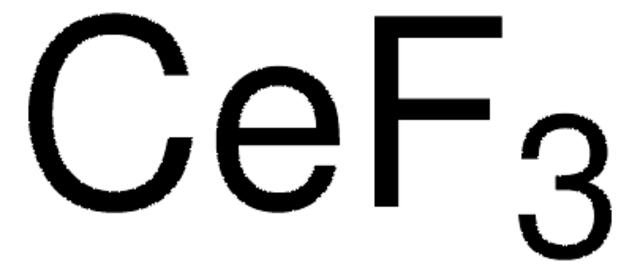263117
Lanthanum
pieces
About This Item
Productos recomendados
Análisis
99.9% trace rare earth metals basis
formulario
pieces
idoneidad de la reacción
reagent type: catalyst
core: lanthanum
resistividad
54 μΩ-cm
bp
3464 °C (lit.)
mp
920 °C (lit.)
densidad
6.19 g/mL at 25 °C (lit.)
cadena SMILES
[La]
InChI
1S/La
Clave InChI
FZLIPJUXYLNCLC-UHFFFAOYSA-N
¿Está buscando productos similares? Visita Guía de comparación de productos
Descripción general
Palabra de señalización
Danger
Frases de peligro
Consejos de prudencia
Clasificaciones de peligro
Water-react 1
Riesgos supl.
Código de clase de almacenamiento
4.3 - Hazardous materials which set free flammable gases upon contact with water
Clase de riesgo para el agua (WGK)
WGK 3
Punto de inflamabilidad (°F)
Not applicable
Punto de inflamabilidad (°C)
Not applicable
Equipo de protección personal
Eyeshields, Gloves, type P3 (EN 143) respirator cartridges
Certificados de análisis (COA)
Busque Certificados de análisis (COA) introduciendo el número de lote del producto. Los números de lote se encuentran en la etiqueta del producto después de las palabras «Lot» o «Batch»
¿Ya tiene este producto?
Encuentre la documentación para los productos que ha comprado recientemente en la Biblioteca de documentos.
Los clientes también vieron
Nuestro equipo de científicos tiene experiencia en todas las áreas de investigación: Ciencias de la vida, Ciencia de los materiales, Síntesis química, Cromatografía, Analítica y muchas otras.
Póngase en contacto con el Servicio técnico








